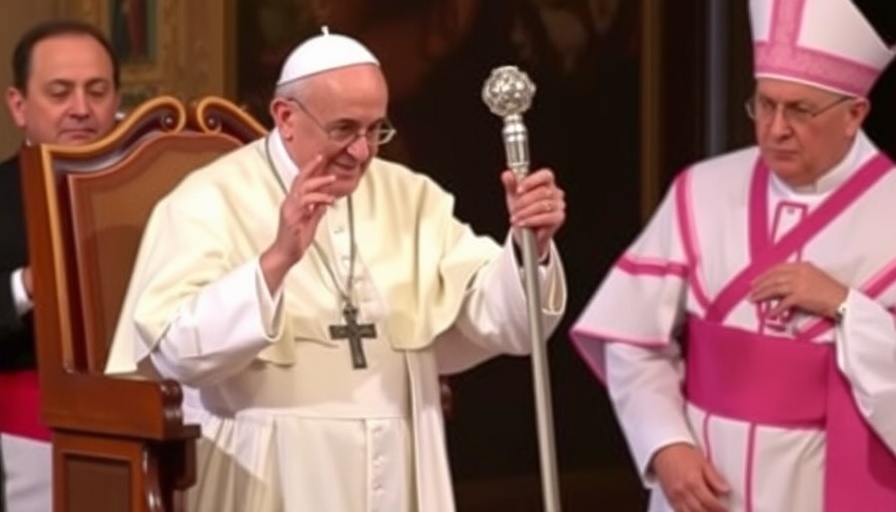
The Sudden Passing of Pope Francis: A Global Reflection
The world mourns as Pope Francis has reportedly passed away after suffering severe health complications including a stroke and cardiac arrest. His departure marks the end of a transformative papacy that had profound implications both within the confines of the Catholic Church and on the broader global stage.
The Impact of Leadership on Global Issues
Pope Francis was not just a spiritual leader but a vocal advocate for pressing global issues such as climate change, poverty, and social justice. His emphasis on compassion and understanding sought to address the societal fractures exacerbated by inequalities and corruption. In South Africa, where issues surrounding governance and service delivery protests have surged, Francis’s message resonated deeply as many citizens grapple with the impacts of policies dictated by the ruling party, the ANC, and opposition movements such as the EFF and the Democratic Alliance.
Pope Francis's Legacy: A Call to Action
In his time, Pope Francis frequently addressed sensitive topics relevant to human rights and equality. From advocating for LGBTQ+ rights to voicing concerns over gender-based violence, his influence hovered over many significant discussions, inspiring movements across the globe. As South Africans prepare for their upcoming national elections, the challenge remains to choose leaders who embody these values and are committed to confronting the underlying issues of state capture, corruption investigations, and economic hardship.
Reflection on Political Leadership and Governance After Pope Francis
His death compels a deeper reflection on the state of political leadership worldwide. In South Africa, leaders will need to step up to the plate as citizens demand accountability against an unyielding backdrop of load shedding, unemployment, and economic recovery struggles. The upcoming elections provide an opportunity for voters to evaluate which parties can effectively address these pressing issues. Historical data suggests that poor leadership following renowned figures can lead to significant setbacks in governmental accountability. Thus, learning from the tenets propagated by Pope Francis may be the guiding light needed for a beneficial change.
A New Era in Religious Leadership
As the world prepares to welcome a new leader of the Catholic Church, communities will likely feel the ripple effects of Francis's principles in new ways. His dedication to environmental conservation, poverty alleviation, and promoting human dignity challenges new clergy to continue his work. The challenge for emerging leaders is to retain the essence of his message while navigating complex global and local political landscapes, particularly in regions where corruption and socio-economic inequalities affect people's daily lives.
Continuous Evolution of Social Issues
People worldwide will continue to seek change, looking particularly at leaders to uphold the principles of justice, dignity, and accountability that Pope Francis championed. For South Africans looking ahead, this means holding current government officials accountable for ongoing issues such as crime prevention strategies and healthcare system reforms. With the nation facing numerous challenges, including ongoing social unrest and the impacts of the COVID-19 pandemic, the late Pope's influence will serve as a motivational tool for many advocates fighting for a better future.
As we navigate these conversations, it is essential for every South African and global citizen to engage in the dialogue around governance, community support, and the preservation of fundamental human rights. The lessons from Pope Francis’s life and legacy can serve as a compass guiding our efforts toward creating inclusive, resilient communities.
In the wake of this loss, it’s crucial for voters to reflect on the role they play in shaping the future of governance in their spheres. Who they choose to lead them in local and national elections will set the tone for practical changes. As South Africa prepares for its national elections, this may very well be the time to reclaim the dignity of representation, thus paving the way towards a just society.
 Add Row
Add Row  Add
Add 




Write A Comment